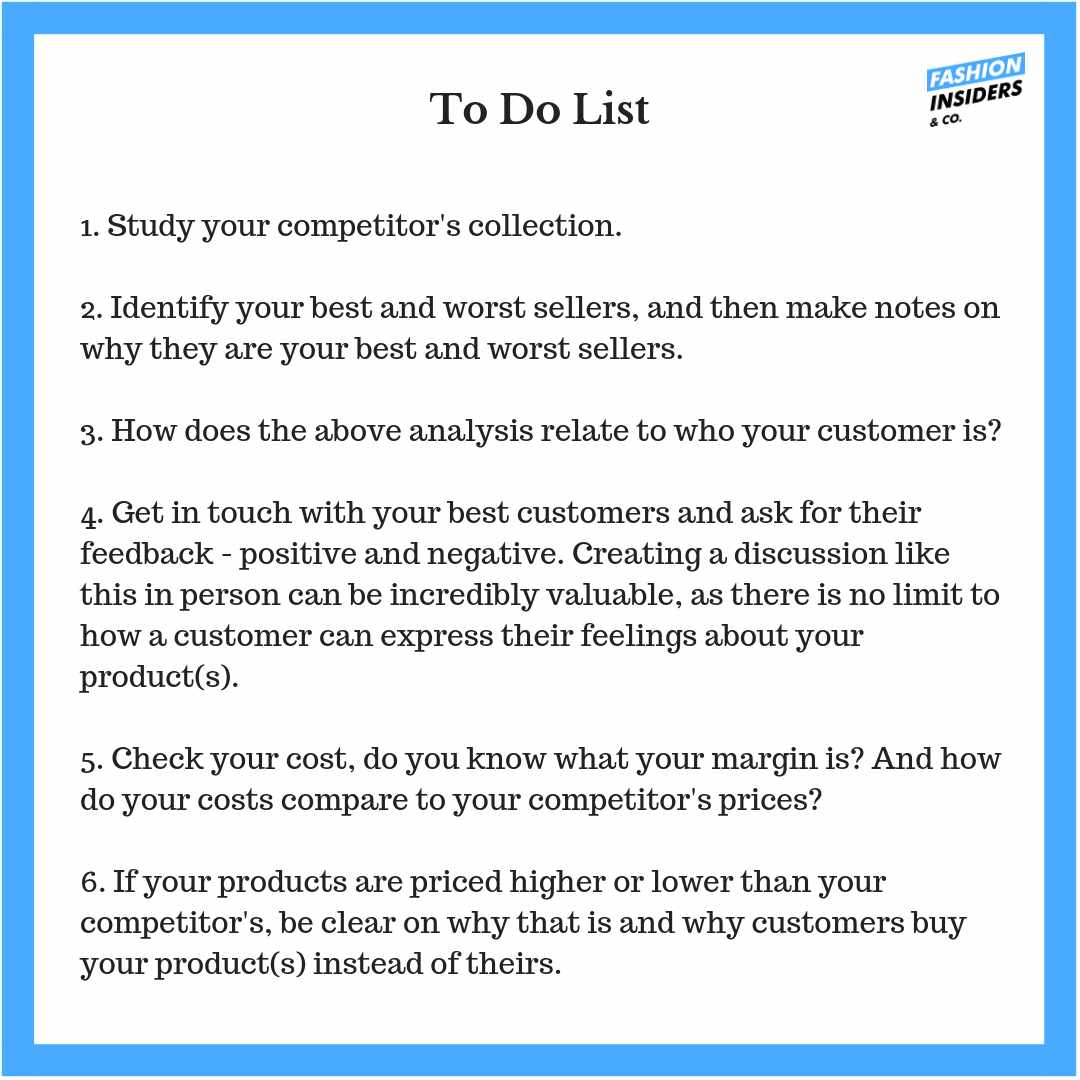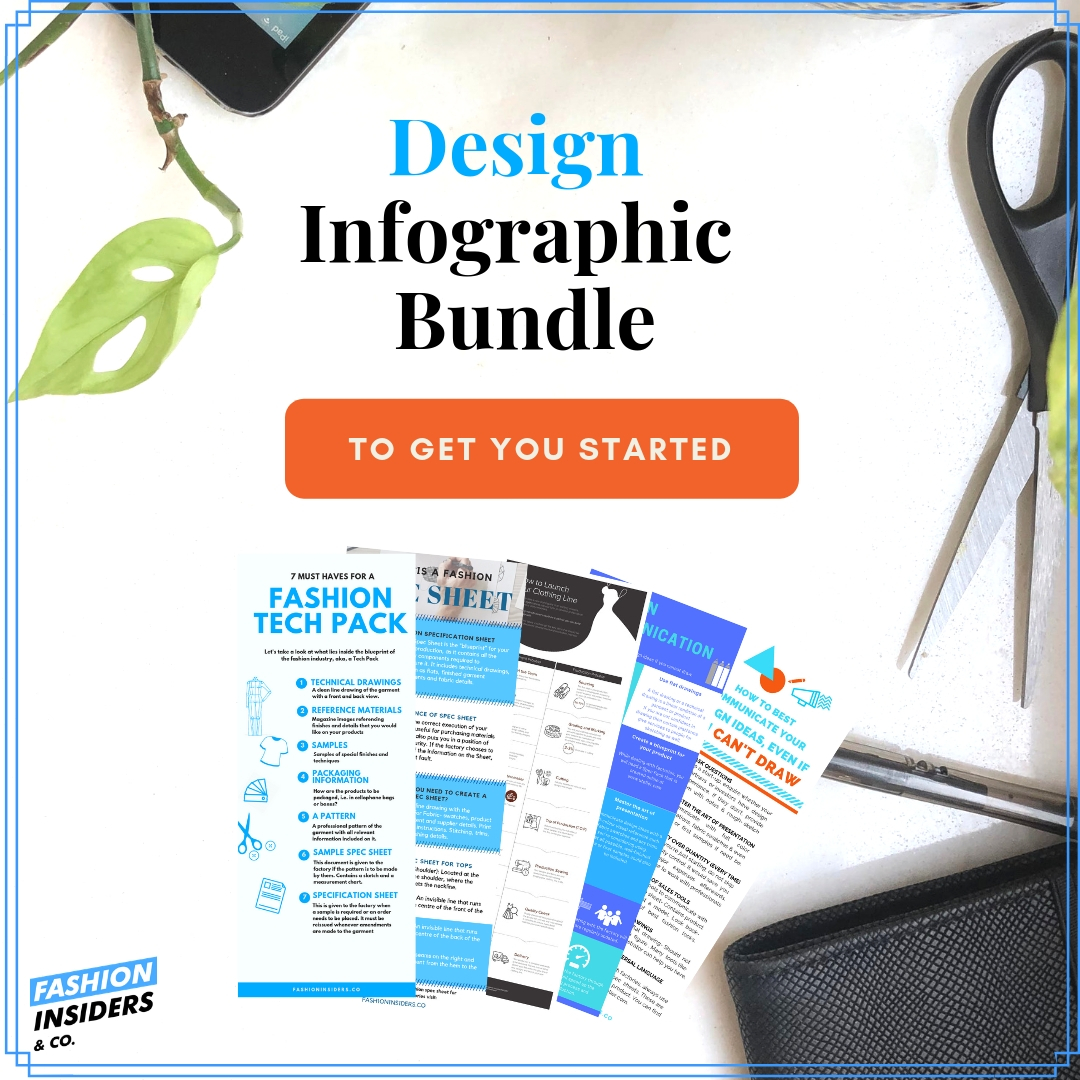Financing a fashion business is one of the key components and prerequisites to being in business. There are some businesses that do not require large capital at the start, and in fact, some get the clients to pay in advance for the product or service offered. Sadly, these are not usually fashion businesses.
In fashion, vast amounts of finance and capital are required, often in advance. Disappointingly, financing a fashion business is like throwing money into a black hole: the more you throw in, the more you need again, and again…
So, being good with money, or partnering with someone who is good at managing finance, is essential. Knowing how to raise money is also important and in most cases, it is necessary.
In the past, the route to starting a brand was often paved by fashion graduates or ex-fashion employees, whereas today anyone can launch a brand. Often, more mature people make a career change and armed with passion and perhaps a good idea, they launch a new fashion business.
Regardless of how and why you ended up in fashion, the journey is often the same with all businesses needing money to finance their fashion business in order to survive.
Below is an outline of the different stages that you will be in and the finance options available. This basic guide should help to demystify the options available.
Initial Stage
The crucial time is at the start: between the time that you have decided that starting a fashion [product] business is what you would like to do, and up to the days following your business launch.
As part of your research, you should have a fair idea of what you will need, in terms of resources, materials and manpower in order to launch. Price it all up and then, double that figure. The chances are there will be many things you didn’t think of, didn’t know you need and that will arise as you get going.
If you are self-funded, congratulations! If you are not so lucky to have the finance behind you, here is what’s available to you:
Savings and self-funding as you go
As the saying goes “Where there’s a will, there’s a way.” So if you have any savings that you can put towards your business, that will certainly help.
Otherwise, working part-time or even full-time to begin with, and dedicating your spare time to planning and starting the business, is a common practice.
Often it is wrongly assumed that if you want to start a business, you need to drop everything else and just work on that. But that’s a myth. The reality is, at least in the beginning, that having a job which takes care of your bills and necessities, allows you to have the peace of mind to focus on your new business. This may sound like you’re spreading yourself quite thinly, but having less spare time can help you to be more focused on what you need to do. There’s less time to second-guess every decision and you have to be more strict with your time.
Many fashion designers work on external freelance projects to generate more income for the business, as well as for living expenses, beyond the launch phase too.
Friends & family
Another way to raise finance in part or in full, is to go to friends and family. Depending on how you approach them, how much they believe in your business and how much they want to support you; the money they give you can be as a loan or in exchange for share options.
Raising money this way has fewer legal constraints, but high emotional responsibility.
Bank Loans
Bank loans used to be easy to get. Today, banks are more regulated than they were 10-15 years ago, and all banks have credit guidelines to follow. The following plays a big part in the bank’s final decision:
- The quality and length of the relationship that you have with your bank and bank manager. A good relationship can go a long way.
- The potential for your business, as viewed by the bank. This is rather infuriating and a biased view, but sadly a reality you need to be prepared to face.
- Any debt burden that you already have: student loans, mortgage, other loans, credit card debt and so forth.
- Potentially having some security to offer as a guarantee in order to secure a sizeable loan. If you don’t have much in the form of collateral to offer the bank in return for your loan, the amount the bank can give you may be relatively small compared to your overall funding need.
Note: Before any of the above, you will need to have a strong business plan to show and discuss with the bank.
Unless you can secure a loan that partially or fully covers your financial needs, a bank loan strategy may not be sustainable in the long term. It will mean that you will still need to spend time looking into how to raise the balance needed. This is time-consuming and will add complexity to your business.
Grants and trusts
Most countries have government or independently-funded bodies that can fund start-up businesses, this is usually through some form of contest or by meeting the set criteria.
Find out the options available to you through your local authority, or by the relevant trade organisations for your sector of the industry. For those living outside of the UK, there will be similar trade bodies in your country and local area.
Usually one can secure more than one such grant at the same time. Be resourceful and look everywhere, as every little counts.
There are grants that offer assistance with trade shows, or grants for entrepreneurs such as the Prince’s Trust. There is a list of further resources, at the end of this article.
Early Stage
Crowdfunding
In today’s digital age, help is never far away and help can come in many shapes and forms. One such helpful form of finance is the phenomena of crowdfunding. As the term itself suggests, crowdfunding is the practice of funding a project or venture by raising monetary contributions from a large number of people, typically via the internet. There are quite a few around and a list of the top ones can be easily found online.
Usually, the company seeking investment will create a pitch explaining the why, what for and how much they need. In return, they will either offer various ‘rewards’ in the form of product or incentives or offer equity.
When done well, this “all or nothing” way to fund your growth is exciting, and also acts as a brand-building tool. But when poorly executed, it can be detrimental to the company as some resource and valuable time would have been wasted – setting the business back rather than propelling it forward as the intention would have been.
Angel Investors
A more established and conventional way of raising capital is the Angel Investor route. These are independently wealthy individuals, often with backgrounds in entrepreneurship and business. They are broadly referred to as “Angels,” and usually offer investments of between £20k and £100k.
Securing such an investment is not easy. Not just because these “heavenly” people are not so easy to find and secure an investment with, but also because, similar to hiring employees, if you make the wrong choice, that choice will have a negative impact on your business. So tread with caution.
Be clear on what you need and if they will have any involvement in your business or not. If they will, clearly define the roles and terms of involvement. Make sure your investor(s) have skills, knowledge and experience relevant to your business, and that you agree with what they will and will not be involved with, based on a clear assessment of the former.
Don’t just take the money thoughtlessly, get to know them and be sure and confident that you can jointly make business decisions – if they have such influence and power reach.
Factoring
The practice of “factoring” is well-established in the fashion industry. In essence, this is usually a company that will provide capital to businesses based on the actual orders they have received on a season-by-season basis.
The way factoring works is that once orders have been taken and confirmed by the buyers, you will hand over your order book to the factors. They will take a cut of the total value themselves, and in return provide you with the cash up front. They take on the risk of collecting payments later when the goods are delivered.
As part of their vetting process, factors may choose not to underwrite certain stockists, which are too small or have bad credit records.
Working with factors is a great way to fund production and bring in much-needed security that you will get paid by the buyers. The percentage they collect as a fee is a small price to pay for a peace of mind.
Growth Stage
Once you have launched and have a few seasons under your belt, more and larger sums of money are – often – needed to keep growing and ensure growth. Your financing options are then drastically reduced to pretty much one.
Venture Capital (VC)
VC funds are privately owned and managed pools of money that invest anywhere from £100k to a few million pounds in early growth businesses. Such funds and the investors behind them, essentially look for:
- High-potential businesses (a great idea/product) with strong prospects for growth, as this would mean that they would be looking at strong sales or user traction.
- A strong team, as strong leadership and team, counts for a lot. The success of the individuals at the helm and their experience can be enough to secure backing, in the belief that past successes will be replicated.
Many VC companies don’t consider fashion as a great industry for solid and safe investment, as it is a notoriously fickle industry: volatile, economy and trend dependent on a micro- and macro-level, with all sorts of fashion-related risks on top.
But in today’s ever-changing business landscape, the competition for traditional investment opportunities has increased, and more VC companies are seeing an opportunity in the market for investing in fashion and fashion-related products and services.
As with angel investors, it is extremely important to get to know your perspective partners really, REALLY well. You must be confident that you get on well with them as people, and share the same business values before you strike a deal.
Understand what motivates and drives them as investors: is it money and making a profit – quickly – or is it passion? Of course, the latter is naturally underlined by the promise of profit. Make the right choice and your company will prosper; make the wrong choice and it can spell the E-N-D for your business.
So overall, there is no easy way to finance your business. No matter what route you take, you will need to prepare and pitch your business not once, not twice, but many, many times. You will get multiple knockbacks, and if you expect differently perhaps it’s best not to start at all.
Whichever way you choose to go, you need to be armed with a clear plan and strategy for your business: be savvy and resourceful, dedicate a lot of time and patience, and listen and take advice at every step, especially legal advice.
Remember: Never sign a document without having had a professional look it over, and make sure the terms suit you and that you fully understand the legal language – it DOES matter! Professional advice, particularly legal advice is often not cheap, but ask around and you will hear horror stories that could have been easily prevented.
Next Time…
In the next instalment of our Series, we will focus on how to plan your budget, and where best to allocate your funds.

List of Resources
• Seedcamp: ideal for those seeking an early-stage micro seed investment fund and a mentoring programme
• Centre for Fashion Enterprise: a fashion business incubator
• Fashion Manufacturing ( ex-DISC): further support for fashion manufacturers and designers on innovating their business
• Angel Investment Network: for UK entrepreneurs and angel investors
• Invstor: to find investors for your fashion business
• Pi Capital: to find investors for your fashion business
• UKTI: UK Government department that works with UK-based businesses to develop their international sales
• Some advice on raising angel capital from Guy Kawasaki
• Hilldun: USA invoice factoring
• Grenke: UK factoring
• Some further advice on factoring from Fashion Capital

Do you have any other insights into financing a fashion business? We’d love to hear from you! Email us at [email protected].



